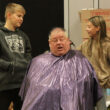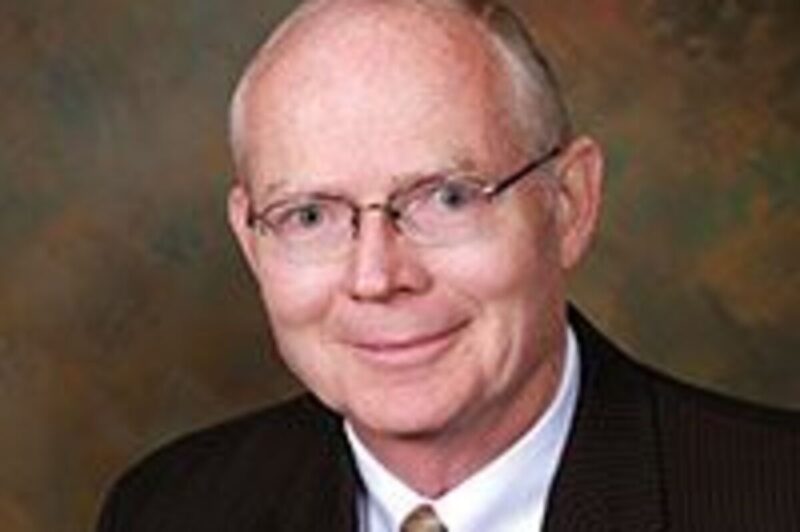Sean C. Morgan
“What if?”
That was the question attorney John Wittwer asked at the annual Sweet Home Economic Development Group membership meeting in March.
SHEDG is a nonprofit organization focused on economic development in the Sweet Home community. It owns and produces the annual country music and camping festival the Oregon Jamboree as a fund-raising tool.
Wittwer is the new president of the 11-member Board of Directors.
“SHEDG’s vision invites us to dream, to freely brainstorm and to ask, ‘What if?’” Wittwer said. The SHEDG board has answered that question in the relatively recent creation of a vision statement: “SHEDG harnesses economic development resources and develops partnerships to unleash Sweet Home’s potential.”
SHEDG’s mission continues to be “to effectively lead efforts to enhance and promote thriving, diverse economic development in the Sweet Home community,” Wittwer said. It’s a mission statement he helped write more than a decade ago and modify slightly since.
Driving these statements is a desire for success.
Not counting occasional lucky flukes, success is fairly predictable, Wittwer said. “That means that doing certain things repeatedly, you’re likely going to repeatedly enjoy success.
“It’s the type of success that has lasting value and benefits someone other than just yourself. It’s the type of success about the desirability of which few people in the community would disagree. Success will be closely aligned with and promote values to which you owe your allegiance.”
Wittwer told the membership that, as a board, “we believe that SHEDG’s choices and SHEDG’s actions must pass muster under seven values: Hope, progress, professionalism, integrity, service, stewardship and community.
“And I expect everyone associated with SHEDG – from its board, its members, its talented employees, numerous faithful volunteers and patrons, even vendors and performers – will be hearing much more about those seven values as SHEDG heads into any always uncertain future.”
When tough decisions confront SHEDG, it will find consistent direction reflecting on those seven values, Wittwer said. “I urge you to remain true to and uphold those values. Success will undoubtedly follow.”
Wittwer came to Sweet Home in 1975, hired by attorney Bill Lewis after graduating from law school at Willamette University. Wittwer said he had other options, but he and his wife, Mirja, “wanted a small town for the most part after I decided not to go to Portland.”
Wittwer has had a few partners over the years, and Lewis went on to become a judge. He raised two sons in Sweet Home.
“We’ve loved it here,” he said.
Wittwer is the senior member of the SHEDG board. He joined by way of the Sweet Home Community Foundation, created by SHEDG in the late 1990s. He was appointed as a liaison between the foundation and the SHEDG board and remained on the SHEDG board years after he completed his service with the foundation. Now he is the new president.
“It’s an honor without distinction,” Wittwer said. “I anticipate (outgoing president) Kevin Strong would have continued another three or four years, but his family situation changed.”
Strong and his wife recently welcomed a baby to their family.
Last fall, Strong tipped his hand about leaving the board, Wittwer said. Wittwer had other things on his plate, so he freed up his time in anticipation of taking over.
After some turnover in the board and with a lack of seniority, he saw a need for his continued and increased involvement, Wittwer said. He was concerned about a leadership vacuum, and SHEDG and the Jamboree are important to Sweet Home.
“It’s definitely a worthwhile effort,” Wittwer said. “It’s a tremendous drawing point for our community.”
That’s clear in a 2001 study of the Jamboree’s economic impact on the community, he said. Going forward, “we need to sharpen our focus. What are we trying to do? See if we can reach a consensus about what is SHEDG.”
He and the board feel strongly about the seven values he described in March and that they benefit the community, he said. Those principles should percolate throughout the entire organizational structure, and everything anyone in the organization does should be justified by a link to those values.
SHEDG is poised with a strong organization to meet the challenges that are a given in life. Among those challenges is the development of a new festival, a proposal that remains alive if not realized after a couple of years.
Wittwer sees challenges like this as opportunities, he said. He has been an aggressive supporter of a new festival, an indie festival, to help SHEDG benefit the community. He continues to support the idea strongly, but developing it must be reasoned.
He remains optimistic about that event, SHEDG’s future and the community’s future, he said. Members of the organization talk about the vision continually.
At the center of that discussion is the challenge of economic development.
Economic development isn’t getting someone from Sweet Home to spend a dollar in a Sweet Home store, he said. That’s a stagnant
zero-sum game.
“One Sweet Homer pays,” Wittwer said. “The other receives without any net gain or development.”
Economic development means adding something that is not currently present in the Sweet Home community, Wittwer said.
“An outsider’s infusion of a single dollar into Sweet Home’s economy has a wonderful way of being multiplied many times over within the Sweet Home community, something that doesn’t happen with such magnitude or intensity when the dollars exchange hands among Sweet Home’s own.”
He adds that the community should never pass up opportunities to sustain those who have already established points of economic activity within the community, such as reaching out to Ti-Squared in an effort to help the company expand and remain in the community.
SHEDG should join a regional approach, being involved even when some effort isn’t just about Sweet Home, he said.
“I’m excited as much as I get excited about anything,” Wittwer said. “What is Sweet Home? A teaming pot of opportunity.”
The Sweet Home All-Lands Coalition, which received $9,000 from SHEDG, and the Santiam Community Forest are wonderful efforts for Sweet Home, he said. They’re creating interactions that have never existed in Sweet Home before. They’ll be useful connections for Sweet Home in the future.
SHEDG continues to work with Linn County to develop former Knife River property on the north edge of the city, he said. SHEDG will bring management and production expertise to a proposed park there.
“I’ve not talked to the commissioners yet,” Wittwer said.
In the vein of regional thinking, Wittwer cautioned against hoping for the failure of competitors, referring particularly to the competing Willamette Country Music Festival outside of Brownsville, whose major sponsor is Bi-Mart.
Bi-Mart will be a resource for Sweet Home, he said. “I have every reason to believe that they will work in good faith with our community.”





